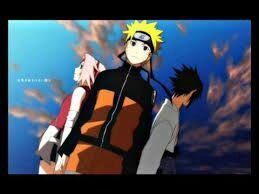
Serve single-mindedly for our country.Ĭhishima no oku mo, okinawa mo, From the ends of Chishima 5 to Okinawa 6, Umi yama tohoku 4, hedatsu tomo, Though separated by seas and mountains Tsukushi no kiwami, michi no oku, Far reaches of Kyushu 3, far along roads Kokoro no hashi wo, hitokoto ni, Corners of my heart, in one word Katami ni omofu 1, chiyorozu no, Think as mementos so many Tomaru mo yuku mo, kagiri tote, Stay or leave, either an end Years have gone by without noticeĪketezo kesa ha, wakare yuku. Light of fireflies, snow by the window,įumi yomu tsukihi, kasane tsutsu. I'm sure that someone else can do a better job at this. I've completely ignored any poetic considerations. I've translated them as literally as possible while making sure that it makes sense in English. The lyrics to the original version of "Hotaru no Hikari" are shown below. However, according to many sources, the composer is most likely Chikai Inagaki, a teacher in the Tokyo Instructor's School (now the Tokyo National University of Fine Arts and Music). It is often said that the composer of the Japanese lyrics is unknown. The usage of the pentatonic scale (common in both Japanese and Scottish music) in "Auld Lang Syne" made it easy for the Japanese to adapt the music. Later it was contained in the first edition of " Elementary School Songbook" as "Hotaru." The music, of course, is by the Scottish poet Robert Burns. "Hotaru no Hikari" made its first appearance in Shuuji Izawa's "Summary of Singing" in 1881. Many who hear the song playing overseas mistakenly believe that they are hearing a Japanese song. In fact, most Japanese do not realize that the music originated outside of their country. Since its composition in the late nineteenth century, "Hotaru no Hikari" has become an integral part of Japanese culture. When customers start hearing this song over the PA system, it is time for them to leave. More recently, instrumental versions of "Hotaru no Hikari" have been broadcast at supermarkets and pachinko parlors at closing time.


However, in Japan, the song is most associated with graduation ceremonies, at the conclusions of which it is invariably sung. The lyrics of "Hotaru no Hikari" are vastly different from those of "Auld Lang Syne." Still, "Hotaru no Hikari" is often sung on New Year's Eve. " Hotaru no Hikari" ('light of fireflies') is a Japanese folk song sung to the music of the Scottish folk song " Auld Lang Syne."


 0 kommentar(er)
0 kommentar(er)
